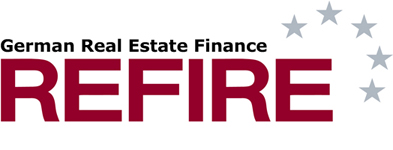The spread between yields on German open-ended mutual real estate funds and German government bonds narrowed last year to its lowest point since 2014, as the Scope rating agency shows in a recently-published study.
The study compared the average annual performance of 15 German open-ended funds with government bonds over a 15-year time period. The funds' gains, or premiums, over the risk-free bonds were nearly always positive over the period.
Last year, however, the spread fell to 2.6%, down from 3.0%, marking its lowest differential for eight years. The coronavirus pandemic led to last year's rolling average performance being just under 2.0%, with commercial real estate - mainly hotel and retail properties - suffering particularly badly. The yield on German government bonds remained largely unchanged last year at an average of -0.7%.
Despite the fall in the yield spread in 2021 versus 2020, the rolling one-year performance of the funds in the second half reflected the recovering market for funds in general. By December 2021 the premium over bonds had recovered to an average differential of 2.9 percentage points.
Still, the Scope analysts are still expecting the open-ended real estate funds to remain under pressure throughout 2022, with the further effects of corona, rising inflation and interest rates, and the war in Ukraine leading to sustained doubt about vacancy levels and property valuations.
As for the real estate industry as a whole, the big bugbear is inflation. While in the commercial property sector, investors are often protected by leases which have index clauses allowing managers to increase rents in step with inflation - assuming, of course, that the tenants are in a position to pay those increases. In Scope's view, the premium of real estate yields over bonds is likely to see further meltdown over the coming years.
Germany's big fund investors are already tuning down their expectations. The BVI fund association says that open-ended funds averaged a return of 2.4% in 2021. Over the last five years, the increase was 3.0 per cent per annum and over ten years 2.7 per cent. Sonja Knorr, Head of Alternative Investments at Scope Analysts, believes a return of 2.0% to 2.5% per cent is possible this year, but, "The development of inflation and economic conditions will have a significant impact on fund returns."
Esteban de Lope of Deka Immobilien is likewise cautious, but says, "We expect a result for 2022 roughly in the same order of magnitude as in the previous year." Last year it fell to between 1.5% and 2.5%, depending on the Deka property fund.
It also much depends on the type of individual fund. For example, the real estate fund "Fokus Wohnen Deutschland" managed a return of 4.5% per annum over the past five years, while the "UniImmo Global" only achieved 1%. In general, while residentially-focused funds do not normally yield as much as other asset categories, they've actually come through the pandemic much more stably, and have attracted investors diverting capital from other sectors, as Sonja Knorr confirms.
The BVI figures show that the residential share in fund portfolios averaged 3.6% at the end of 2021, up from a lowly 0.9% in 2018. Shares of retail, gastronomy and hotels have all declined as a result of the pandemic, often in favour of residential. "Residential real estate delivers stable rental income even in difficult market phases and is a good complement to the cyclical commercial real estate market," notes the BVI.
Other winners have been the logistics sector, thanks to the strong growth in online trade, and office properties, which continue to be the largest type of use for the funds, accounting for around 55%. In Sonja Knorr's view, commercial properties have the advantage "that the leases are often indexed, i.e. fully or partially linked to inflation", adding to the attractions of the sectors, which already offer the broadest diversification of products.
While rising interest rates is a factor, most funds used relatively little borrowed capital to purchase their properties, with debt ratios of under 5% to up to 30%, depending on the vehicle. Global real estate funds might even invest more in Europe as a result of interest rates in the USA and the UK rising faster than in the eurozone, causing higher currency hedging costs for the biggest funds. The BVI thinks Germany might be a particular beneficiary of this.

